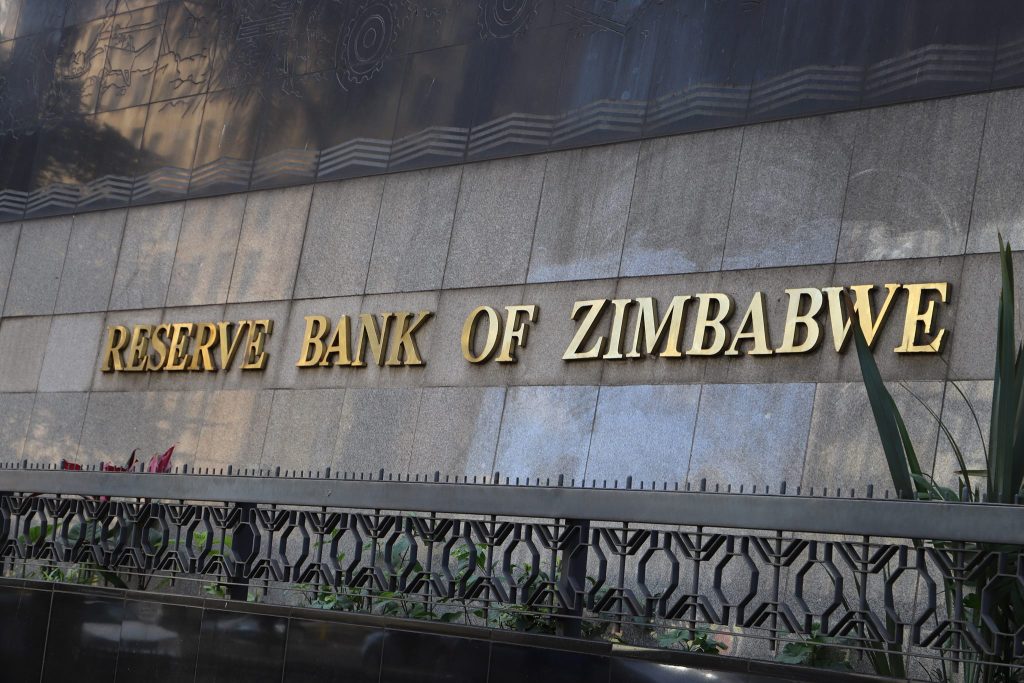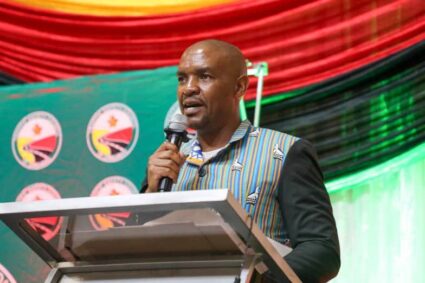
Desperate to contain inflation which has been raging on unabated like a wildfire for almost four weeks, Zimbabwe’s financial authorities have come up with a “solution” to contain the problem; mop up every extra Zimbabwean dollar saturating the market and lock it away.
The Southern African country’s deputy minister of Finance and Economic Development, Clemence Chiduwa, told the Business Times that the exercise, carried over the course of a week, had resulted in the flushing out of over ZWL$200bn excess liquidity, leaving the market dry. Chiduwa warned of an even drier future ahead as the government continues to rake away residual liquidity.
“We have mopped up all excess liquidity in the market and there is reduced Zim dollar amounts resulting in a huge demand for the local currency…it’s not surprising that the market will have a serious demand of Zim dollars to pay bills and other costs that require local currency”, Chiduwa was qouted by Business Times as saying.
However, My Afrika Magazine can report that most service providers and local authorities, who usually bill in local currency, have since adopted the US dollar as their preferred currency. Other government departments and basic not for profit institutions like courts, are also charging in American dollars.
Recently, the country’s election managing body, the Zimbabwe Electoral Commission (ZEC), pegged the nomination fees for the forthcoming harmonised election’s aspiring candidates in USD. Reports of some aspiring candidates having their Zimbabwean dollar payments rejected in favour of the green hard currency were heard in the wake of the sitting of the nomination court on the 21st of July 2023. The highest fee on ZEC’s pricelist was for the highest office in the land; the presidency, pegged at a dizzy USD20 000.
Once touted as the ‘strongest’ currency in Southern Africa by the country’s academic finance minister, Mthuli Ncube at its “rebirth” barely five years ago, the Zimbabwean dollar has been on a bungee tumble for the better part of 2023. Loosing its buying power every week in dramatic fashion, the local dollar has become so worthless that even the highest denomination of the notes in circulation, a hundred-dollar bill (ZWL), cannot buy a lollipop.
Treating the symptoms, rather than the cause with the cost of living surging out of reach for many underpaid citizens, it remains to be seen whether this measure, alongside the many others which Harare has jerked into action to arrest the situation, will indeed yield positive results that will sustain the economy both on the micro and macro levels and, importantly, bring stability on the market. Economist and former lawmaker, Eddie Cross, opines that while these responses will bring a semblance of stability on the market, they will not treat the fundamental problems bedeviling the markets right now as the authorities seem to be much concerned about treating the symptoms rather than the cause.
“The fundamental problem is systems for marketing hard currency inflows is simply flawed. In fact, we don’t follow any conventional system at all. This has resulted in elements in the market being able to manipulate the parallel market exchange rate to their benefit,” Cross tells My Afrika Magazine in an interview.
The Zimbabwean dollar, according to Cross, has all the potential to perform better and to be the strongest currency in the region but disappointingly, the opposite is what’s on the ground.
“There’s no justification for the current exchange rates on the parallel market at all. We have a surplus of foreign exchange; we have a surplus in our fiscal affairs and therefore we should be rather seeing a strong Zimbabwe dollar instead of the opposite”.
Zimbabwe will be going to the polls on the 23rd of August 2023, and the economy will top the agenda of the manifestos of all the presidential candidates vying for the country’s top job. Incumbent president, Emmerson Mnangagwa, is hopeful for another five-year term to “finish what he started”, but his main contender, Nelson Chamisa of the Citizens Coalition for Change party argues the economy cannot afford another five years of “maladministration”.



